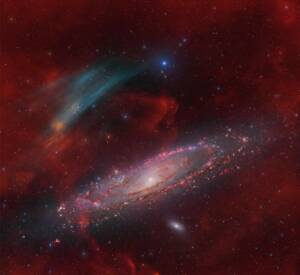
Discovery of the M31 [OIII] emission arc
Recently, a major discovery by an international team of amateur astronomers and scientists has become a huge online hit, and this new discovery is just located in one of the
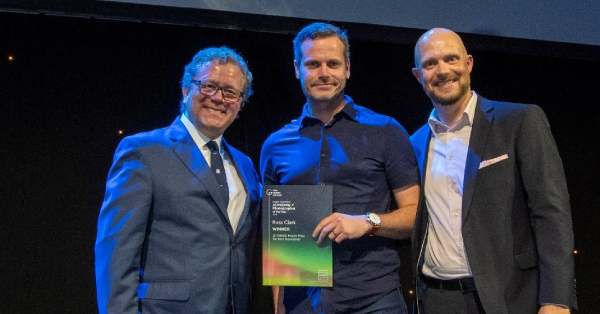
Ross Clark is the winner of ZWO 2020 ASIWEEK #03, also the Best Newcomer at the Royal Museums Greenwich Astronomy Photographer of the Year awards in 2019. To make our ZWOers know this excellent astrophotographer better, we make this interview. Let’s all take a look now.
Hi my name is Ross Clark, I am 39 and I live in Newcastle upon Tyne in the North East of England with my wife Kate and our 4 children. I am a deep sky astrophotographer that started in September 2018 with a Canon 450D and a Sky-Watcher Star Adventurer.
I have always been interested in the night sky, as a child I wanted to be an astronaut, like many children. However, I decided to go to University and study Astronomy and Astrophysics purely due to my love of the subject. I am now 39, I took up astrophotography in September of 2018. I think partly this was due to seeing some images on Facebook that looked amazing that I also wanted to create, but mainly I think it was to reconnect with the little boy in myself that wanted to travel amongst the stars. Imaging the skies above brought me incredible joy, seeing the first sub frame come through on your computer screen of that nights target still makes me excited, it makes all the set up and issues and cold weather worth while.
I do, well of sorts, I had taken some images with a static tripod with my DSLR but very quickly decided to get a SkyWatcher Star Adventurer so I could track with the night sky. My first target was then M31, the Andromeda Galaxy. I took 120s subs and I had my Canon 450D connected to my laptop. When the first sub came through on the laptop screen I was absolutely spellbound, excited and almost emotional. It was only 1 frame but the image of the galaxy was clearly there with its bright core and partner galaxies. I think more people connecting with the wider universe around them would help people to understand our own unique and delicate place in the universe and precious it is. The below image made me fall in love with this hobby and my desire to get better and better images.
I currently use the following
Camera: ZWO ASI1600MC-Pro
Optics: Canon EF L 70-200mm f/2.8 and a Lacerta 72mm f/6 APO refractor
Mount: iOptron CEM25P
Guiding: ZWO 60mm guide scope, ZWO ASI120MM-S guide camera
Filters: Sky Tech L-Pro Max, Altair Astro Triband OSC, Radian Triad Ultra Quadband all 2”
Sotware: I use APT for image capturing, I use PHD2 for guiding, DSS or PixInsight for stacking and I prefer to do my image processing mainly in Photoshop although also use PixInisight.
Lenses and wide refractors are my current favorites. I still consider myself a beginner, or at best an intermediate, and starting wide is very forgiving allowing you to learn and still create good images. The more experienced you get I think the larger a focal length you can get. In my opinion they also produce the cleanest images with the most contrast. Both of the below were taken from my back garden but show how much I have learned in digging through to the signal. Helped by having an incredible cooled camera.
I personally prefer Deep Sky, looking at targets that may not even be in our own galaxy is truly mind blowing, that I can set up in my light polluted back garden and image incredibly faint objects millions of light years away is just incredible to me.
I do hope to get in to planetary, the issue I have is I image primarily in my back garden due to work and family commitments and I struggle to see South so the ecliptic is a problem.
I do not think there is a single thing. You have to have the outlook that you will master every piece of kit you have, understand how it works, what are its strengths what are its weaknesses. For me this is why a DSLR, lens and a tracker is a perfect start, there is only some additional settings on the DSLR to understand for astro, and then a tracker, here you learn about polar alignment, balancing, periodic error, you begin to get to know your tracker, what you can do, what you cannot. Once you expand so does the required knowledge, a mount requires knowledge on guiding, acquisition software, plate solving etc. The deeper you go the more you have to learn. Even now I have new problems that I have not encountered and I really enjoy working out a solution and putting that in to your routine.
Actually the difficult bit is having a long run of clouds and feeling like you have forgotten all you have learnt, ha ha.
My back garden is a Bortle 7 and I have travelled to a dark site a handful of times (although not since May) which is a Bortle 3. The difference was staggering, seeing the Milky Way arching overhead clearly with the naked eye is something everyone should be able to see at least once in their lifetime. I have not made it there since I had my ASI1600MC-Pro but the results I got from my Canon 450D and a Star Adventure where brilliant.
The above picture won me the award of Best Newcomer at the Royal Museums Greenwich Astronomy Photographer of the Year awards in 2019.
I have always feared this target due to it being very large and very dim and my light polluted location. So having recently been loaned a Radian Triad Ultra filter from OPT Corp I decided to give it a go. I knew I needed long subs, the longest I had taken was 300s so I decided to double it and go for 600s.
Gain: 139, Offset: 50, Temp: -15C, Duration: 600s, Subs: 40
Processing was difficult due to the weak signal even with 600s subs. When the clouds next clear I do hope to add some more time on to this project.
I bought the ASI1600MC-Pro from a friend and I have been very much impressed with what it can do and how far it has pushed me past the realms of DSLR imaging. Having a cooled camera is an incredible step forward in noise reduction.
My guide set up is currently all ZWO also and has never let me down, the ASI120MM-S is incredibly sensitive and always capable of finding a guide star. I would like to get into mono imaging also and I will certainly consider ZWO when I make that jump.
For me the most important consideration is results, we do this to create beautiful images so the sensor has to be capable of doing that. So I will look at a lot of actual images created by other users when researching a new camera.
Beyond that a good astro camera should be good value for money, be well made and reliable.
I like ZWO as a company, they offer great products at a price that is hard to ignore. I think you could do better with your English based communications. There are elements of what is listed on Facebook, and actually in this set of questions, that is of broken English, or the English of a person that English is not the first language. I understand that you are a Chinese company but I think some people may well be put off by some of this, as they may worry about how they communicate with a company that does not appear to speak English to a level that they are happy with when making a purchase in the thousands of pounds. I mean no disrespect by this, only as an area of improvement.

Recently, a major discovery by an international team of amateur astronomers and scientists has become a huge online hit, and this new discovery is just located in one of the
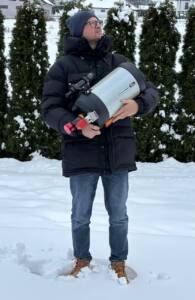
Hi everyone. My name is Alex, and I am an astrophotographer. I would like to start by thanking You for choosing my picture among all the great pictures You receive.
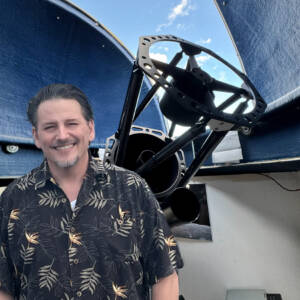
Why the Orion Nebula Never Gets Old – Each winter, stargazers return to this cosmic masterpiece to test new skills and relive the wonder. Explore the Orion region’s iconic nebulas,
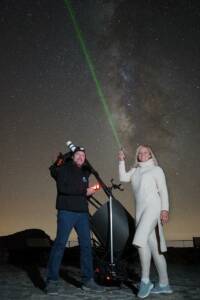
In 1994, I built my first fully functional reflecting telescope in Hungary with my own hands. In the former Eastern Bloc countries, telescopes still could not be purchased in stores
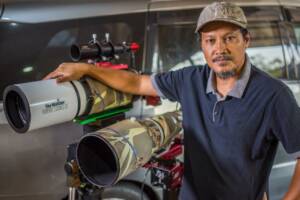
1.How It All Began I have been a fan of astronomy since high school.Starting from a school event where I can see the moon up close through a telescope.When I
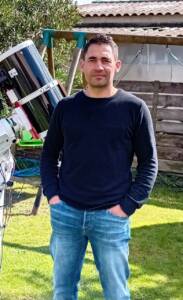
1. How It All Began For Puig Nicolas, it all started at the age of 10 with a 60/700 refractor and a 114/900 reflector. His first celestial encounters — the